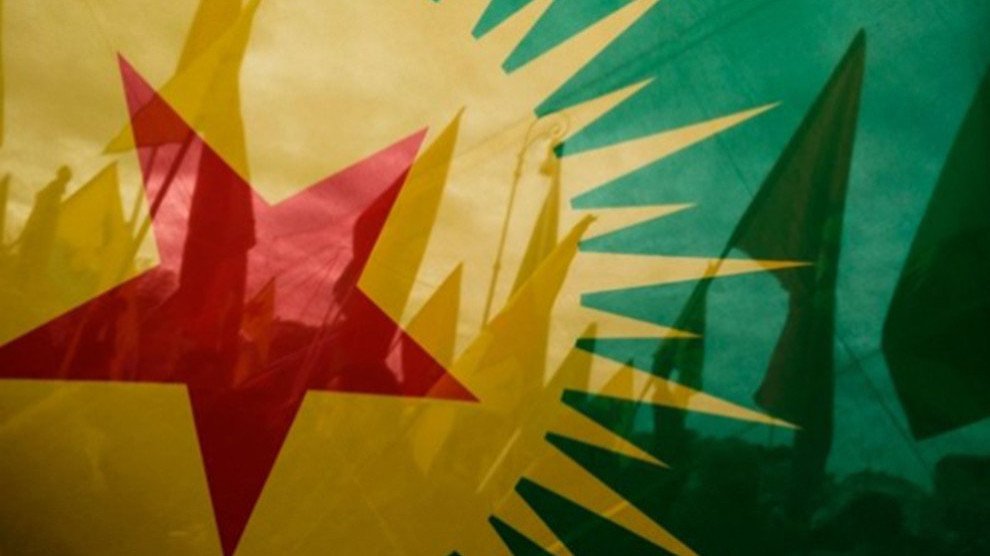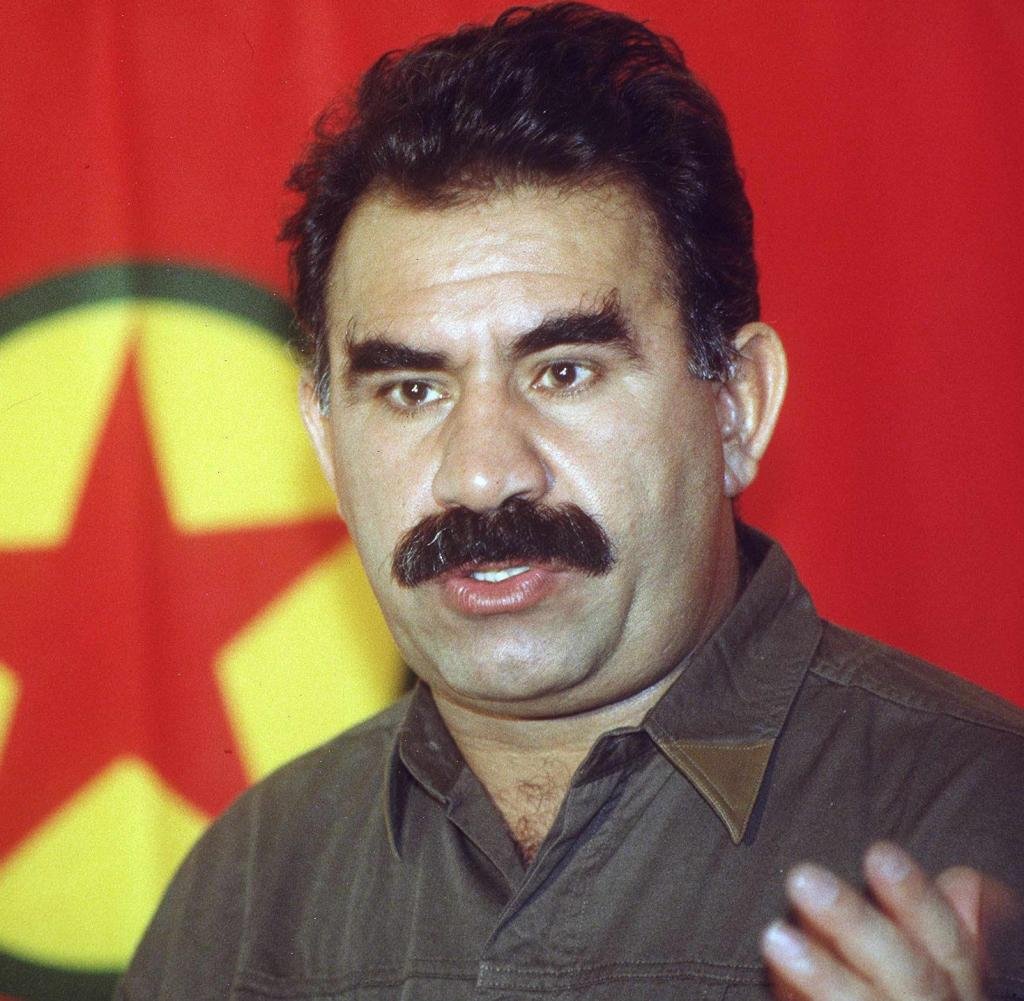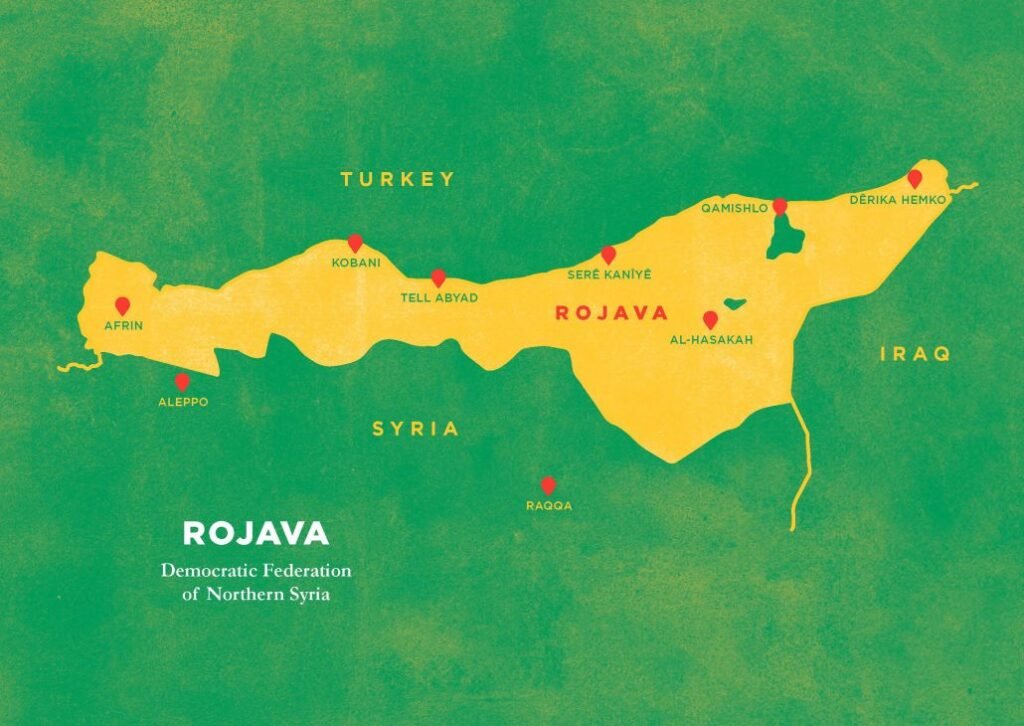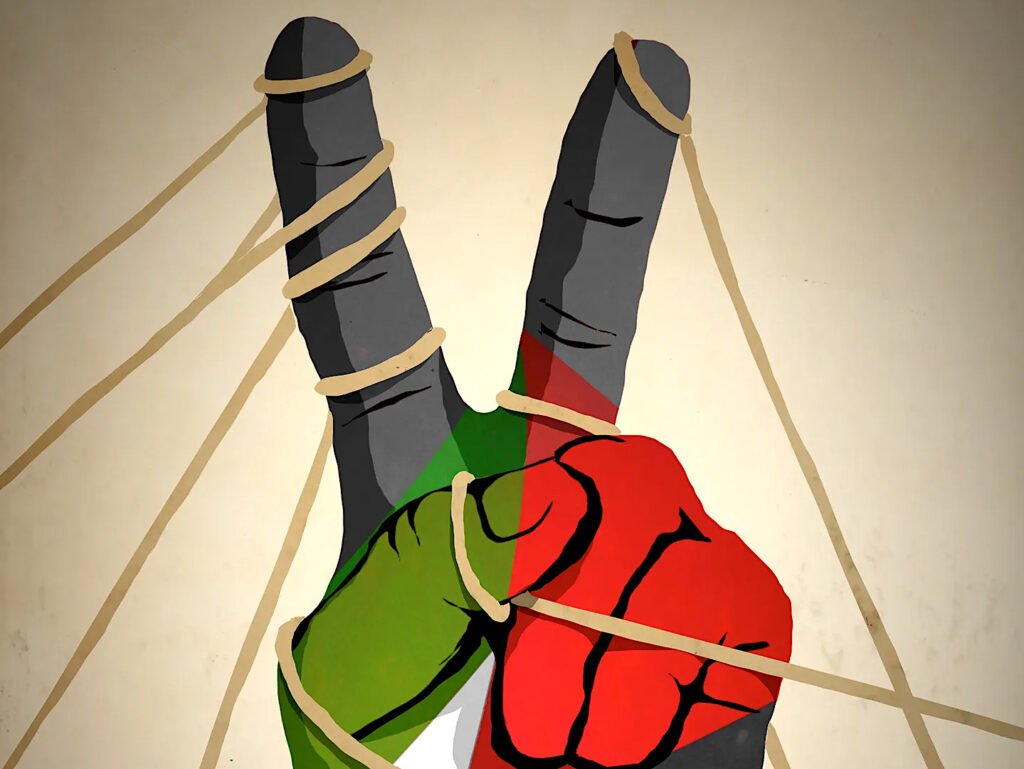In October 2023, the familiar scenes of violence in Gaza resonated deeply with the Kurdish people, who have long endured the brutal realities of oppression. As jihadist militants backed by a notorious state sponsor of terrorism once again targeted an embattled minority, the parallels between the experiences of the Kurds and Palestinians became strikingly clear. The systematic violence faced by both groups—oppressed by authoritarian regimes backed by international powers—underscores the broader global struggle for self-determination.
The assault on Israel by Hamas on October 7, 2023, and the subsequent Israeli military response have sharply divided Kurdish opinions. Prominent Kurdish figures, such as Diliman Abdulkader of the American Friends of Kurdistan, have drawn parallels between Hamas and Turkey, presenting them as threats aligned with Islamist extremism. Abdulkader frames the Kurdish struggle as part of the broader Western fight against terrorism, equating Turkey’s aggression towards the Kurds with Hamas’s attacks on Israel. In contrast, the Kurdistan Communities Union (KCK) has expressed solidarity with the Palestinian people, highlighting the shared historical ties and struggles against systemic state violence and occupation.

Shared Struggles in the Fight Against Imperialism
The division within the Kurdish movement reflects a deeper connection between the Kurdish and Palestinian experiences of oppression. The Kurds, the largest stateless nation in the world, have faced both the terror of jihadist militias and the systematic violence of militarized state regimes, typified by Turkey’s aggressive policies toward Kurdish regions. For decades, Kurds have experienced forced displacement, political repression, and military assaults, often at the hands of the Turkish state, which employs tactics reminiscent of Israel’s occupation of Palestinian territories. The Western response to the Gaza conflict has often been characterized by a reductionist understanding of the complexities involved. Many Western commentators and leftist movements struggle with their powerlessness in the face of global capitalist hegemony, clinging to anti-imperialist rhetoric without fully grappling with the realities of modern geopolitical constraints.
The fetishization of armed resistance, a relic of past anti-colonial struggles, obscures the need for a more nuanced understanding of the current conflicts. Leftist movements must reckon with the authoritarian tendencies of groups like Hamas while supporting the legitimate struggle of the Palestinian people for self-determination.
The Kurdish Vision for Democratic Confederalism
The Kurdish struggle stands apart due to its rejection of traditional state-building models. Influenced by the writings of Abdullah Öcalan, the Kurdish movement advocates for a system of democratic confederalism, which seeks to transcend the limitations of the nation-state. This decentralized and pluralistic approach aims to create a society that prioritizes gender equality, environmental sustainability, and direct democracy, offering an alternative to the nationalist frameworks that dominate the politics of the Middle East, including in Israel and Palestine.
Öcalan’s critique of the state as inherently authoritarian and exclusionary is especially relevant to the Israeli-Palestinian conflict. He argues that true self-determination for oppressed peoples, including Palestinians, cannot be achieved through nationalist movements that replicate the power structures of the state. Instead, the solution lies in dismantling hierarchical systems and building democratic societies that promote collective liberation for all peoples, regardless of ethnicity or religion.
The Autonomous Administration of North and East Syria (AANES), also known as Rojava, represents a practical realization of this vision. In Rojava, Kurds, Arabs, and other minorities govern together in a federal system that emphasizes participatory governance and the devolution of power. This model stands as a beacon of hope for oppressed peoples worldwide, demonstrating that another way is possible—a way that rejects the violence and authoritarianism of both state regimes and jihadist movements.

Turkey’s Role in the Geopolitical Landscape
The Turkish state’s involvement in the Gaza conflict highlights the contradictions inherent in the global imperialist system. Turkey’s support for Hamas, alongside its ongoing military campaigns against Kurdish regions, underscores the geopolitical entanglements that perpetuate violence and oppression in the Middle East. Turkish President Recep Tayyip Erdoğan’s vocal support for Palestinian liberation is undermined by his government’s repression of the Kurdish people, revealing the disingenuousness of his anti-Israel rhetoric.
The Kurdish movement, led by the Kurdistan Workers’ Party (PKK) and the KCK, recognizes the need to transcend nationalist frameworks that perpetuate cycles of violence. As Öcalan has articulated, the Kurdish vision for a democratic nation, or “netewa demokratîk,” challenges the legitimacy of the nation-state itself. This critique extends to both the Israeli and Palestinian leadership, as nationalist movements rooted in state power cannot achieve true emancipation for their people.

The Future of Resistance and International Solidarity
As the world watches Israel’s ongoing military operations in Gaza, it is clear that a new internationalist response is needed—one that goes beyond the binary logic of state violence and armed resistance. The Kurdish movement’s commitment to building democratic alternatives offers a powerful model for global solidarity in the fight against imperialism and authoritarianism. The experiences of the Kurds and Palestinians demonstrate the need for a broader struggle that challenges the foundations of the capitalist state and envisions a future based on collective self-determination.

Global political landscape continues to shift, the Kurdish movement’s vision of a democratic, stateless society provides an important lesson for all those committed to the cause of liberation. The struggle for a truly socialist internationalism—one that rejects the violence of the state and embraces the principles of equality, freedom, and justice—remains as urgent as ever.

